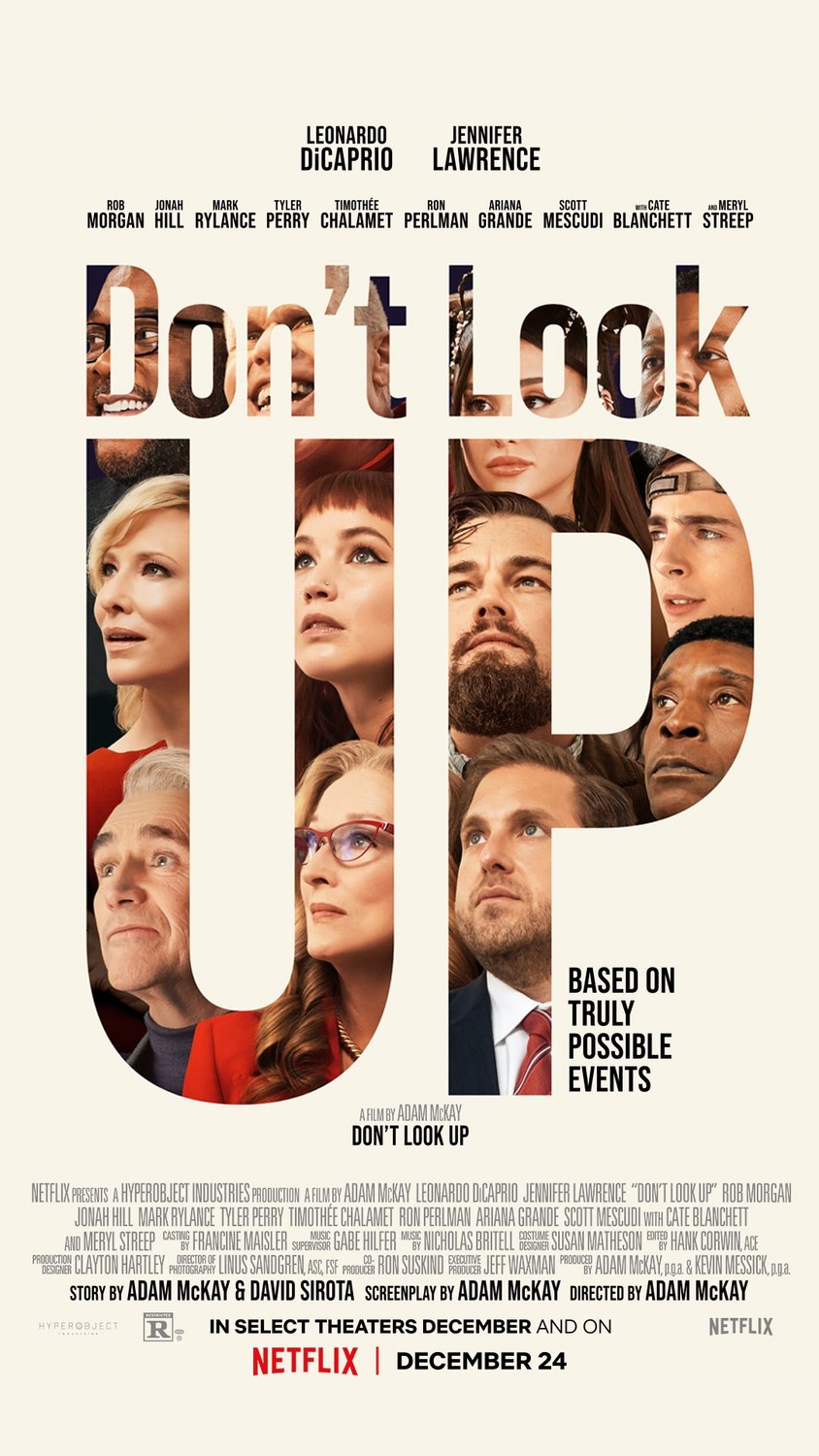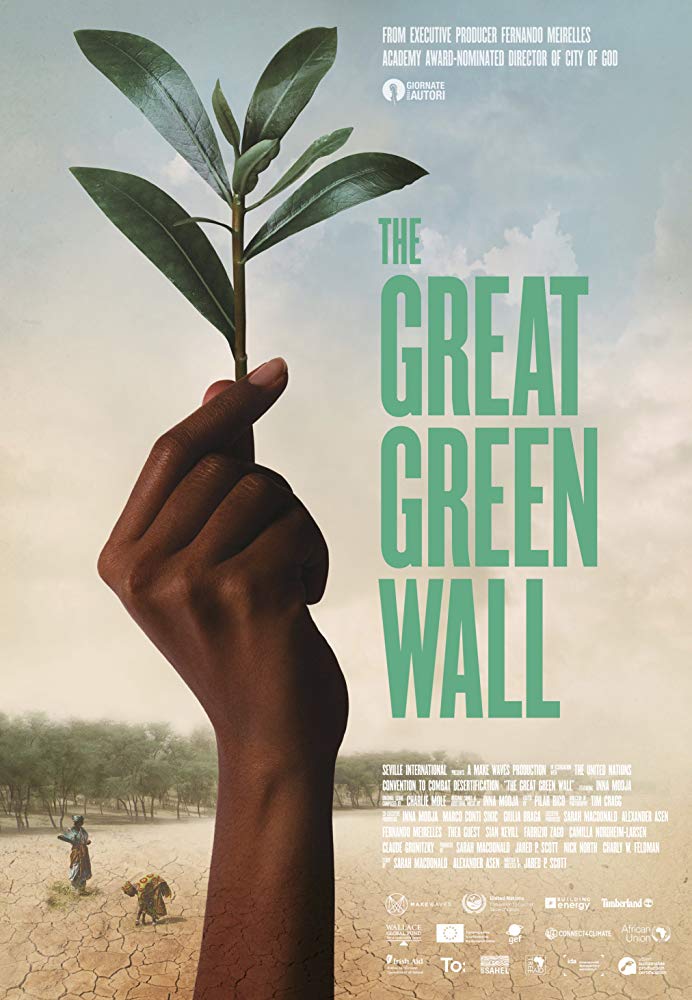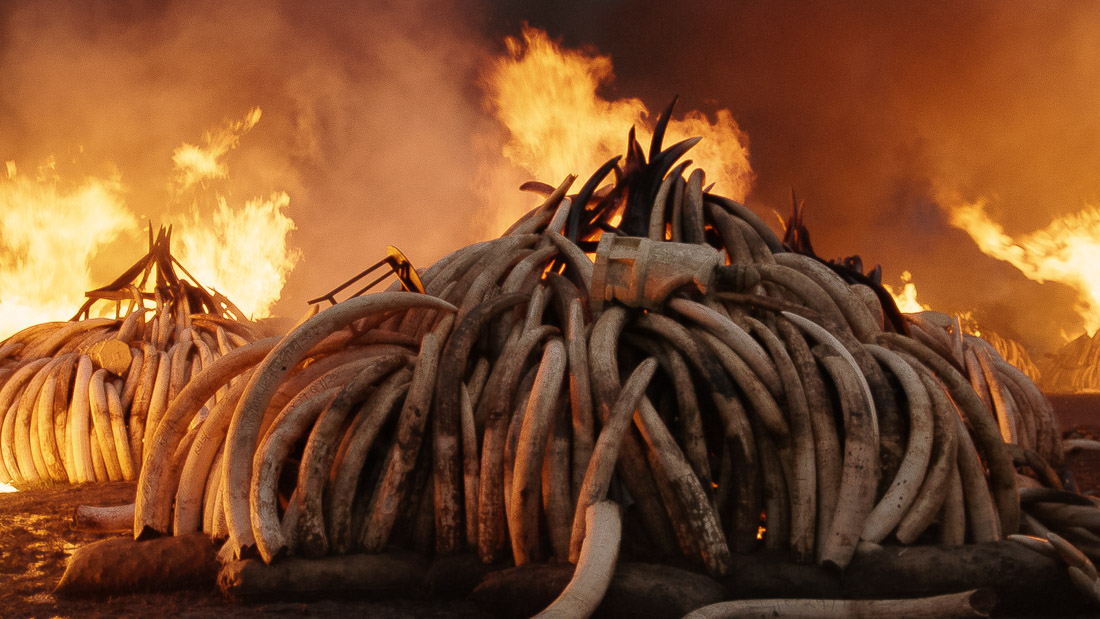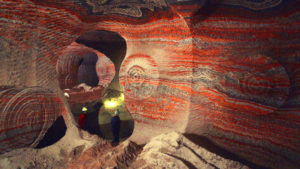
“Don’t Look Up”
December 7th, 2021 Posted by pamela Review 0 thoughts on ““Don’t Look Up””Michigan State University PhD candidate Kate Dibiasky (Jennifer Lawrence) and supervising professor Dr. Randall Mindy (Leonardo DiCaprio) have unexpectedly discovered a comet the size of Mt. Kilamanjaro hurtling toward Earth with an expected global destruction impact date in 6 months. They must alert the US Government and ultimately the general public in an effort to save our planet, but the hurdles they encounter just may make it impossible to do so. Thankfully, we are laughing out loud almost the entire time, a surprising effect, as the masterful writer and director Adam McKay finds a way to make annihilation hilarious while not so subtly burying the issue of climate change just below the surface to open our eyes.
From the opening scene portraying Kate’s revelation, and confirmation by Mindy, of a comet that will destroy Earth is accurate, the reactions of these ordinary — yet brilliantly intelligent — people is what sets the comedic tone to the film. The pair set out to alert NASA who then alerts the president of the United States, President Janie Orlean (Meryl Streep), with whom the pair will meet and explain and hopefully prevent the end of mankind. After waiting hours in uncomfortable rooms and purchasing cheez-its (this becomes a running joke), Mindy and Kate finally get a chance to explain their findings. While not falling upon deaf ears, although it is the Midterms and Congress may never pass the budget she and her Chief of Staff (and son) Jason (Jonah Hill) who has a few mommy issues, the most powerful woman in the world attempts to find a way to spin this whole thing into a profitable position with the help a major contributor who is also a leading scientist and business man Peter Isherwell (Mark Rylance).
Mindy and Kate have hit a dead end and with the help of Dr. Teddy Oglethorpe (Rob Morgan), head of NASA, they hit the streets to let the public know about the comet. Getting some air-time on a popular morning show hosted by the effervescent Jack (Tyler Perry) and the superficial alcoholic Brie (Cate Blanchett), Kate finds her performance to be as catastrophic as the comet named after her. And this is just the beginning of their 6 month-long adventure into chaos, turmoil, and life in the fast lane which neither Kate nor Mindy navigate well.
McKay’s attention to detail in comedy is extraordinarily precise while always feeling free-flowing and fun. Never missing an opportunity to weave social narratives into the picture, the film, surprisingly written before Covid hit, finds ridiculousness in our truth while exaggerating it slightly to entertain us. McKay’s loose yet focused direction gives each of his actors an opportunity to explore, develop and ultimately run with their characters bringing aspects to life that no one could have written. We experience Hill’s oedipus complex with Streep’s expressive comedy as pure gold. Their performances lend a hand to the frustrated character of Dr. Mindy as DiCaprio hones in on his passion of saving the Earth as the fictional character of Mindy. McKay also takes full advantage of our instantaneous and reactionary population as Lawrence’s demonstrative effects find their way into memes, gifs, and notoriety.
“Don’t Look Up” is a complicated and tangled story weaving together so many characters (even Ariana Grande’s performance and improvised lyrics make you laugh), but never losing focus and strategically circling back to the path we’ve already traveled. This makes for not only great storytelling, but great comedy.
With a cast like this, there’s not a weak link in it, all having performances of a lifetime, and even more evident, having fun! However, Mark Rylance as the Elon Musk-type of character is one of the most surprisingly hilarious performances. His teeth alone will make you laugh, but his mannerisms are what makes our jaws drop as he expresses his thoughts and decisions about how to avert imminent doom and make a few bucks. On that same note, Blanchett finds a way to make Brie a caricature of a television host who lives for the day into a mesmerizing yet deplorable woman. And then there’s Timothee Chalamet in a role that he was meant to play, a skateboarder named Yule, who brings the entire story together.
McKay ushers us into our comfortable seats to see his film, but we quickly find that we are in the launch position of a rocket. We are strapped in for an incredible ride filled with laughter and revelations, the comet as a metaphor for so much of what’s happening in our world today. Hang on tightly! This is a ride you don’t want to miss.
4 Stars




